
Peace, crises, Trump vs Biden: what awaits International Geneva in 2024?
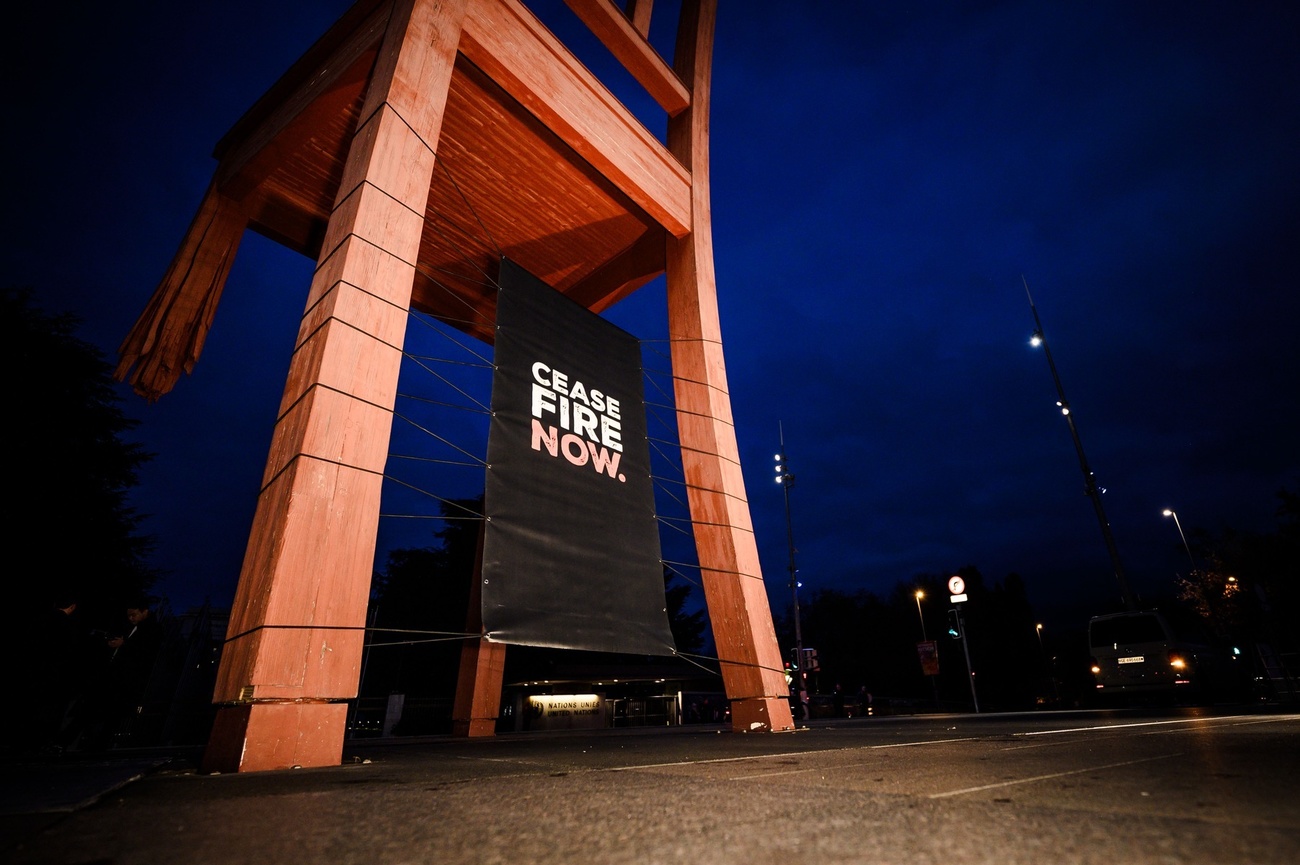
A sense of uncertainty hangs over Geneva's international organisations. In 2024, there are glimmers of peace, but also new conflicts and the possible return of Donald Trump.
The year 2023 has been one of crisis after crisis for International Geneva. The year 2024 promises to be just as complicated. SWI swissinfo.ch analyses what the new year will bring.
Ukraine: diplomacy in action
On January 14, an attempt at brokering peace in Ukraine will not be made in Geneva, but in the Swiss Alps, in Davos, where a round of discussions will be held on Ukrainian President Volodymyr Zelensky’s peace plan.
Russia did not take part in the three previous discussions in Jeddah, Copenhagen and Malta, and there is no indication that it will do so this time.
So these are not negotiations. And the hope of peace in Ukraine in 2024 remains remote. As The Economist pointed outExternal link in a recent editorial: “For Ukraine, allowing Russia to keep the territory it occupies is unacceptable, not least because of the economic impact of losing part of its access to the sea. For Russia, the invasion still looks like a failure, as it does not fully control the four provinces annexed in 2022.”
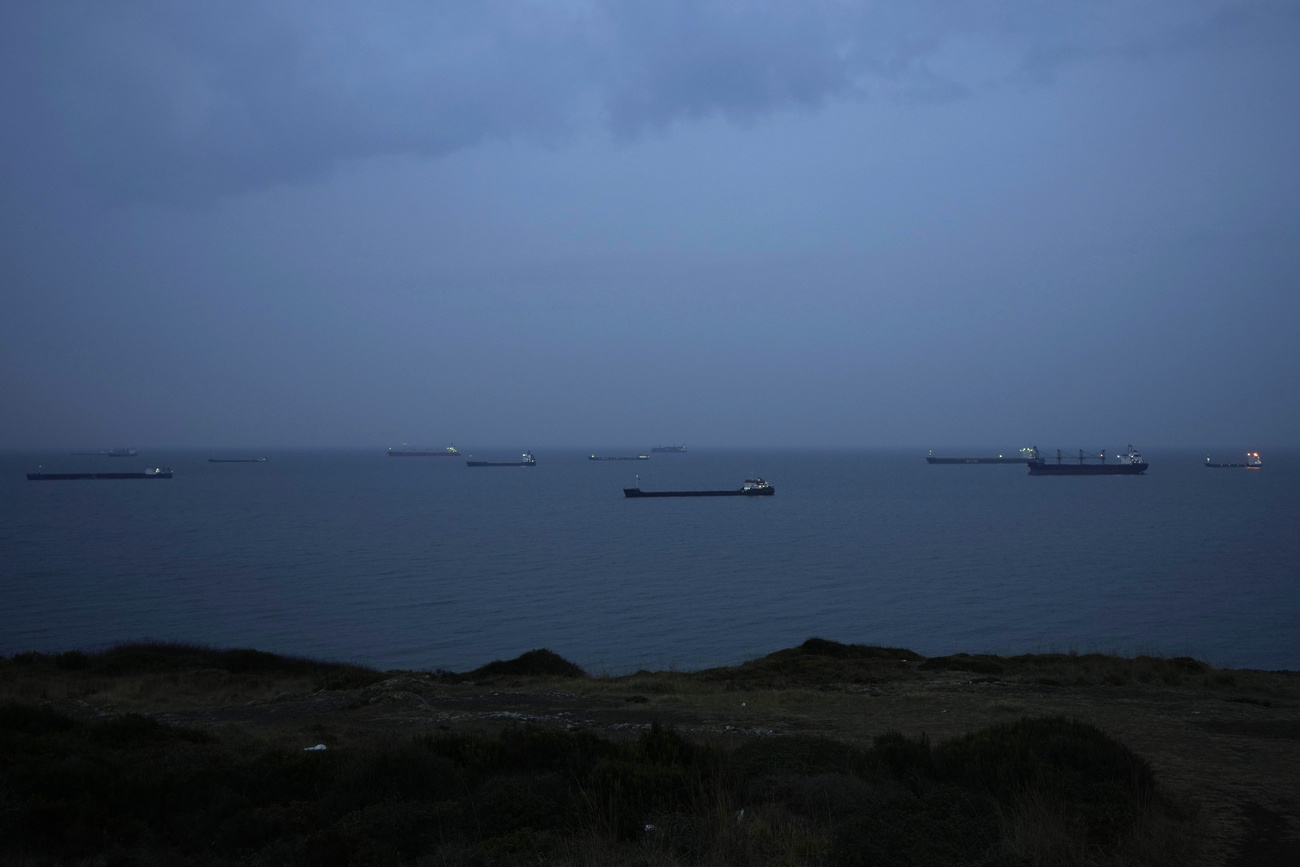
More
Why the Black Sea grain deal is so important
One of the few points on which Ukraine and Russia had been able to agree, the Black Sea Grain Agreement, negotiated by the UN and Turkey, expired following Moscow’s withdrawal in July 2023. The agreement had led to a resumption of Ukrainian exports and a fall in grain prices, helping to avert a global food crisis. However, when questioned by Geneva SolutionsExternal link, a senior UN official revealed that discussions aimed at resurrecting the agreement are underway.
One of Geneva’s discreet mediation NGOs, the HD Centre, played a key role in setting up this agreement, as revealed in an investigation by the Devex media. At a time when official Swiss mediation seems impossible, this parallel diplomacy enables indirect dialogue between Russians and Ukrainians. In 2024, it will probably continue this way, hidden from view.
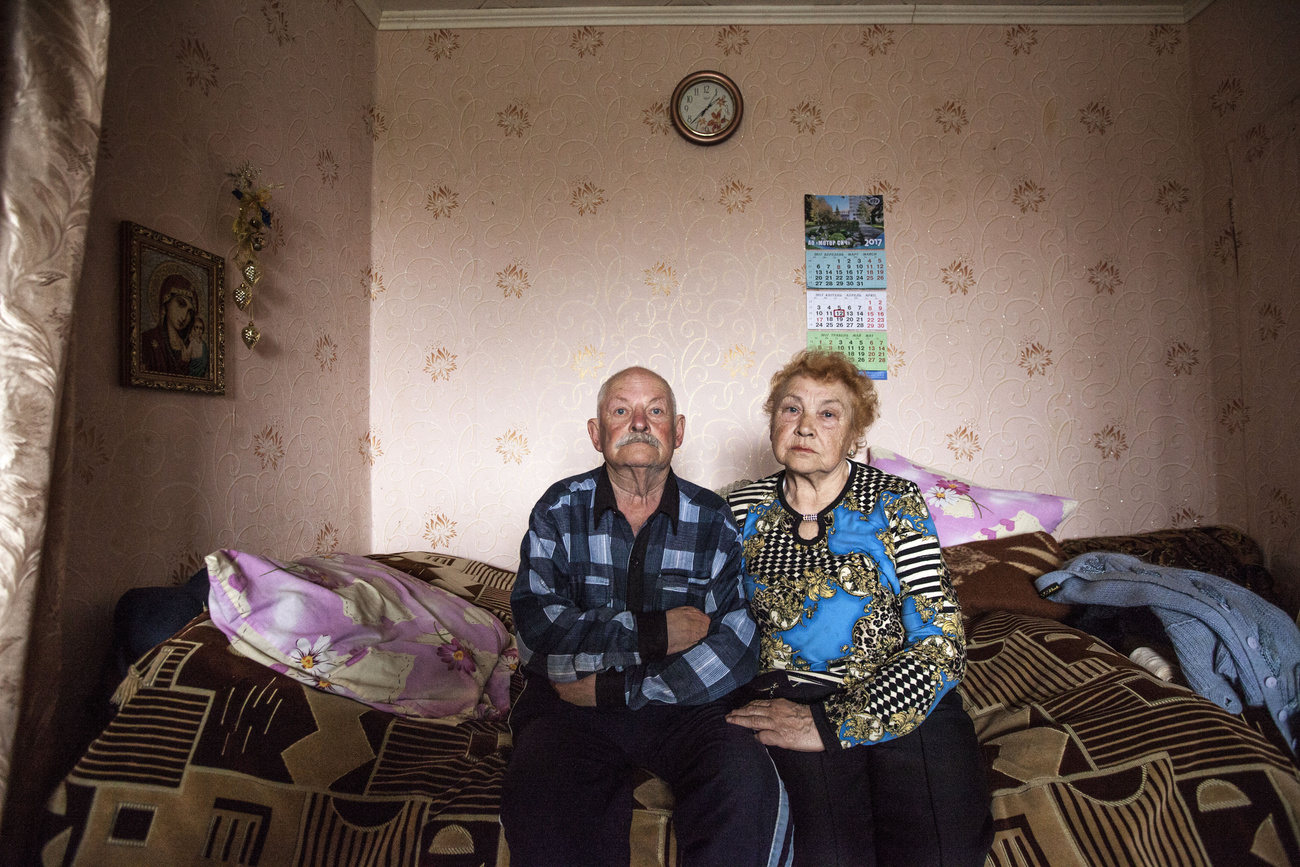
More
Is the time ripe for peace in Ukraine?
Middle East: escalation or lasting peace?
In mid-December, the outcome of the war in the Middle East remains uncertain. Repeated calls from Geneva by humanitarian agencies for a ceasefire have so far only yielded a one-week humanitarian pause at the end of November.
During this pause, the International Committee of the Red Cross (ICRC) played a key role, facilitating the transfer of 80 Israeli hostages in exchange for 240 Palestinian prisoners.
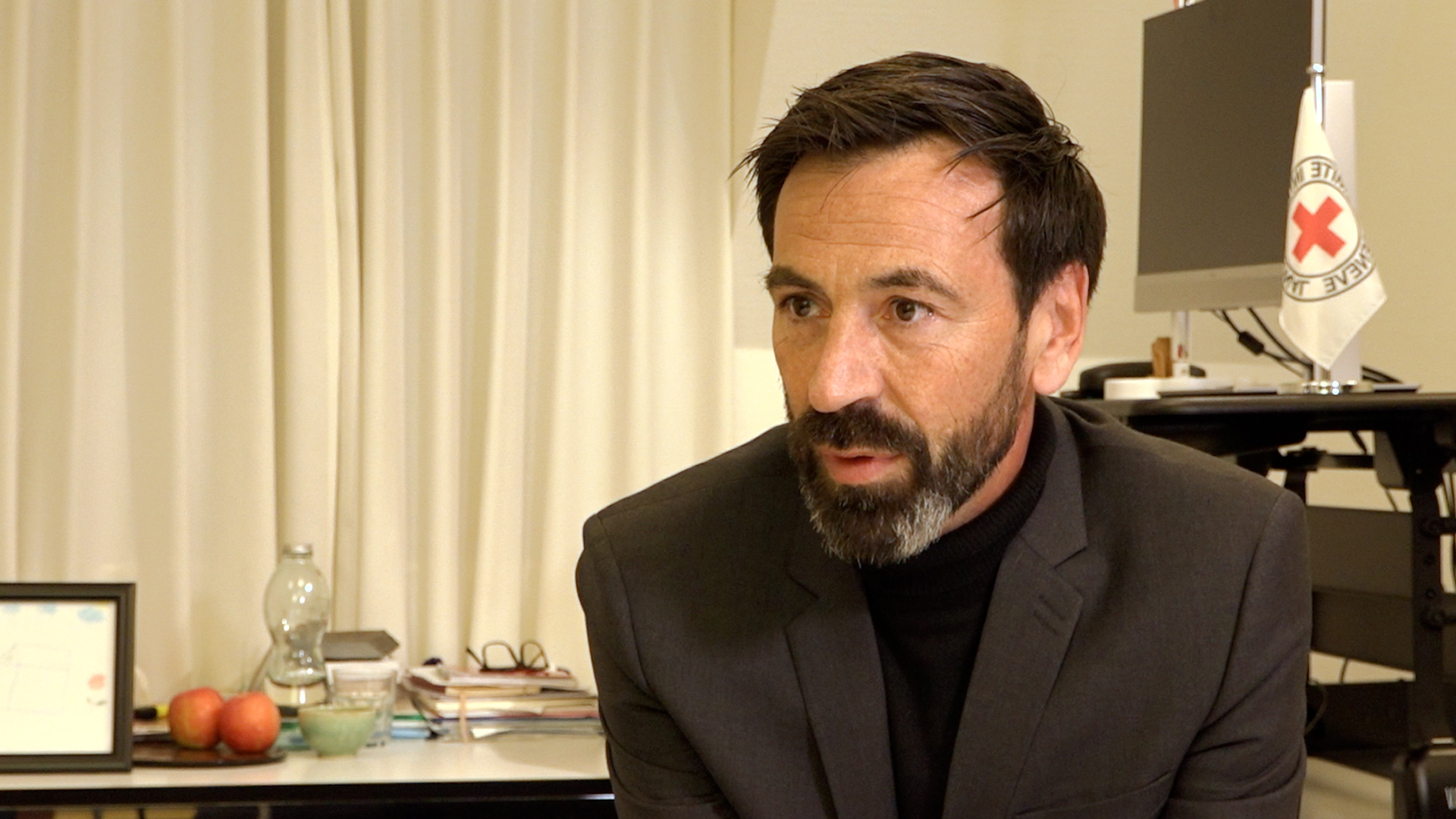
More
Fabrizio Carboni: ‘People tend to believe we can do things that we cannot do’
Humanitarians have run out of adjectives to describe the suffering of the civilian population in Gaza. Next year, one question will plague them: will the war lead to a regional escalation, a conflict that is set in stone, or is there hope for a lasting peace?
A humanitarian system on its last legs
The year 2023 has been a difficult year for Geneva’s humanitarian agencies. Existing conflicts remained unresolved, while new crises erupted in Sudan and the Middle East. There were also natural disasters, sometimes in already fragile areas: earthquakes in Syria and Afghanistan, and floods in Libya.
The UN expects the cost of meeting humanitarian needs to reach $46 billion by 2024. This is a realistic estimate, taking into account the limited sources of funding. As the end of the year approaches, UN humanitarian agencies have received only 37% of the $57 billion they need.
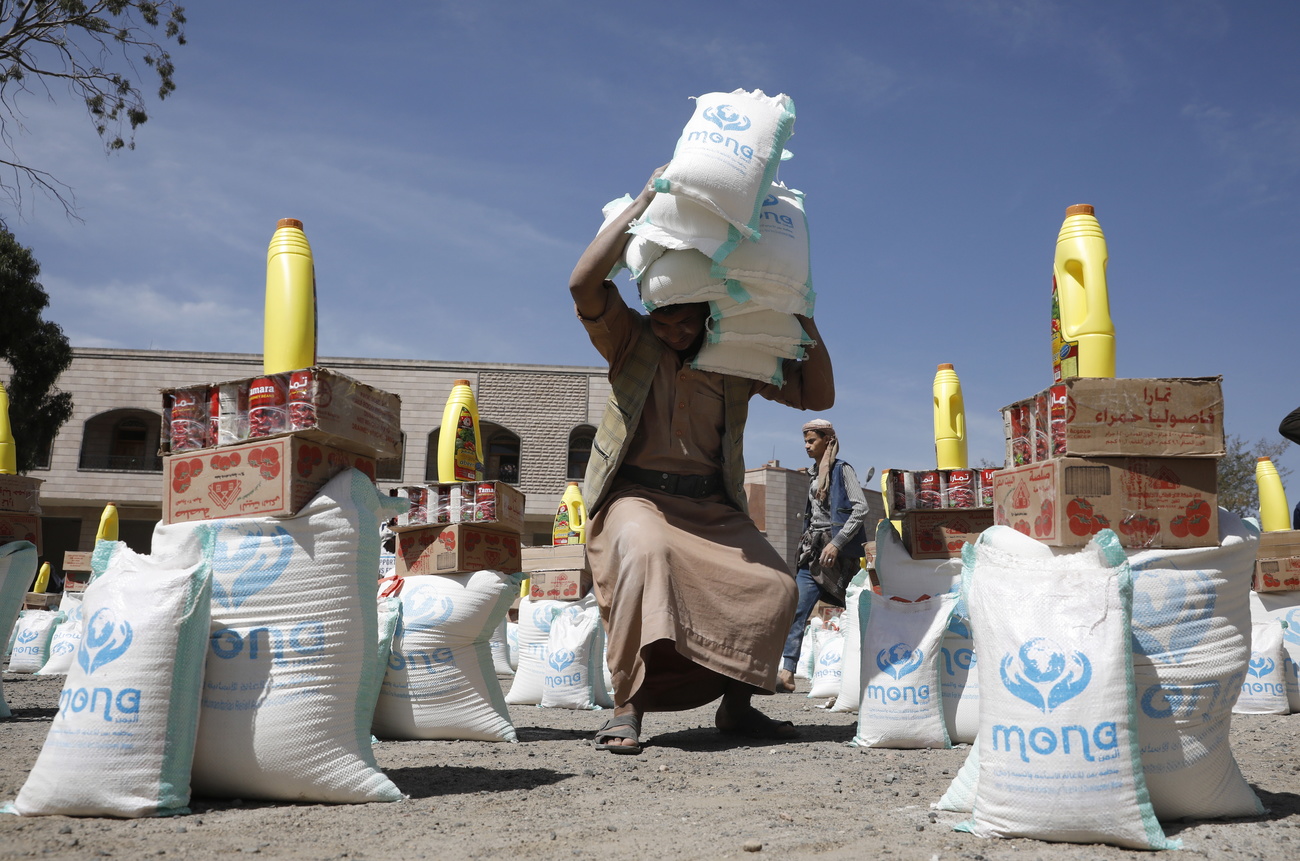
More
Funding gap forces aid agencies to make tough decisions in Yemen
The challenge will remain – while the wars in the Middle East and Ukraine dominate the Western media – to draw the attention of donor countries to forgotten crises: from Haiti, Afghanistan, the Democratic Republic of Congo, Yemen and Syria.
The year 2023 was also one of crisis for the ICRC, which faced a major funding shortfall. Accused of spreading itself too thin and overspending, the Geneva-based organisation said it would refocus on its core activities: well-being of prisoners of war, exchanges of detainees and reuniting families. The ICRC has already cut its budget and announced the elimination of some 1,800 jobs. With its neutrality often misunderstood, the organisation will have to prove that it can still make a difference. This will be a major challenge for the future director-general, Pierre Krähenbühl, who will take up his post in April.
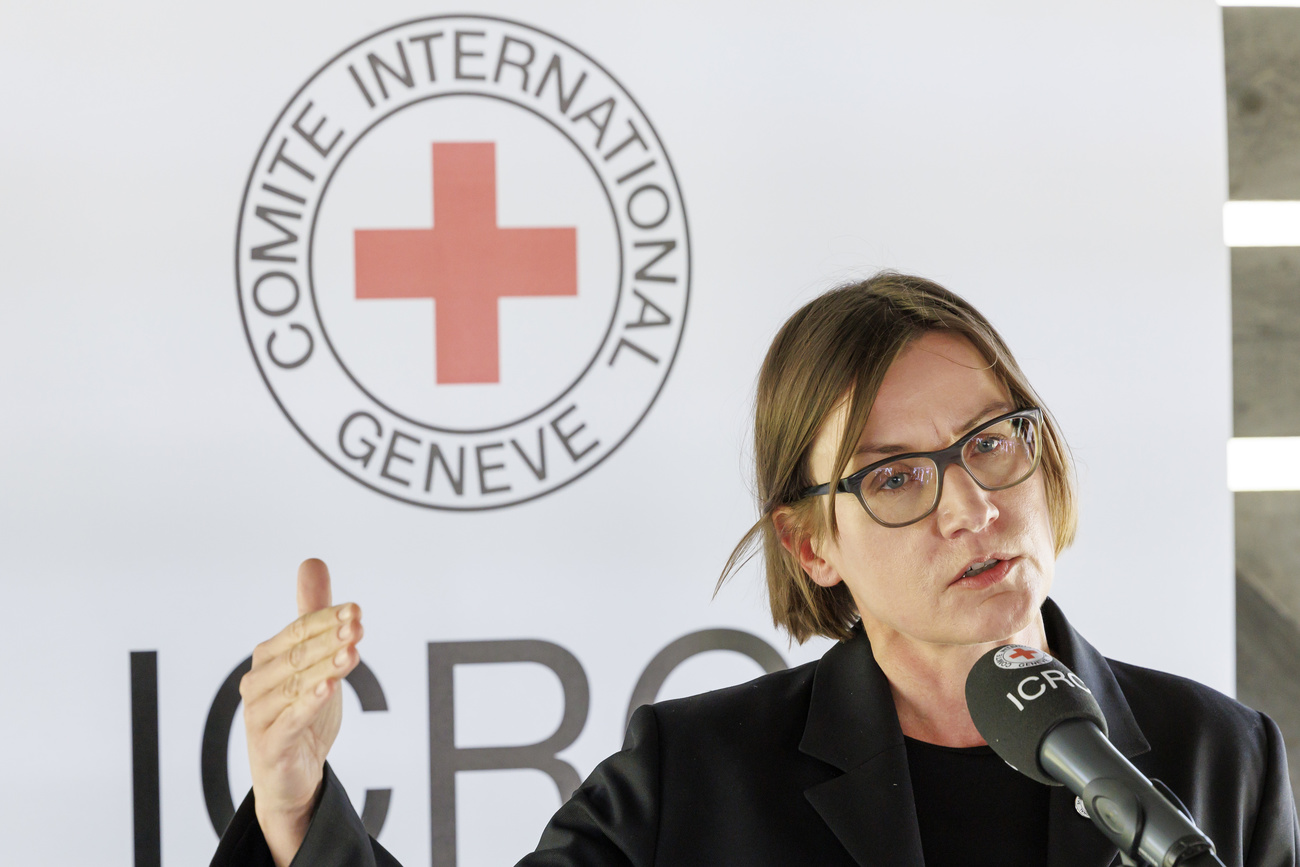
More
Funding gap: ICRC calls on big donors to step up
A high-stakes presidential election
In November, the eyes of International Geneva will turn to the United States, where the presidential elections will take place. A ‘rematch’ is possible in which incumbent President Joe Biden and his predecessor Donald Trump will once again face off. A close election which, as The Economist points out in another editorial, is likely to come down to the votes of “tens of thousands of voters in a handful of states”.
During his term of office (2016-2020), Trump displayed his contempt for multilateralism, casting a pall over the international organisations in Geneva. At his instigation, the United States withdrew from several bodies, including the Human Rights Council and the World Health Organization (WHO). The result was the rise of China, determined to take advantage of the vacuum left by Washington to put its stamp on the human rights system.

More
How China is rewriting human rights norms
The Republican’s return to economic protectionism would certainly also be bad news for the World Trade Organization (WTO), whose arbitration system has remained paralysed since the Trump administration.
Agreement on pandemics
In 2024, a treaty on pandemics should be adopted by the WHO. The future agreement, which has been in the pipeline since 2021, should enable the WHO and its 194 member states to prevent and combat the next pandemic more effectively.
Negotiations are progressing, but differences remain between the countries of the South and those of the North. One of the main sticking points is patent protection for vaccines and medicines. Countries with strong pharmaceutical industries, including Switzerland, believe that a relaxation of the law in this area would act as a brake on innovation.
If the final text is adopted as planned at the next World Health Assembly at the end of May 2024, it will be a rare current example of successful multilateral collaboration on a global scale.
Security Council: second round for Switzerland
The UN’s political decisions are taken in New York. But they have consequences for the work of its European headquarters in Geneva, from where humanitarian action is coordinated in particular.

More
What to expect when Switzerland heads UN Security Council
In 2024, in its second and final year as a non-permanent member of the powerful (if often paralysed) Security Council, Switzerland will have the opportunity to take its values to the highest level.
Edited by Virginie Mangin

In compliance with the JTI standards
More: SWI swissinfo.ch certified by the Journalism Trust Initiative




























You can find an overview of ongoing debates with our journalists here . Please join us!
If you want to start a conversation about a topic raised in this article or want to report factual errors, email us at english@swissinfo.ch.